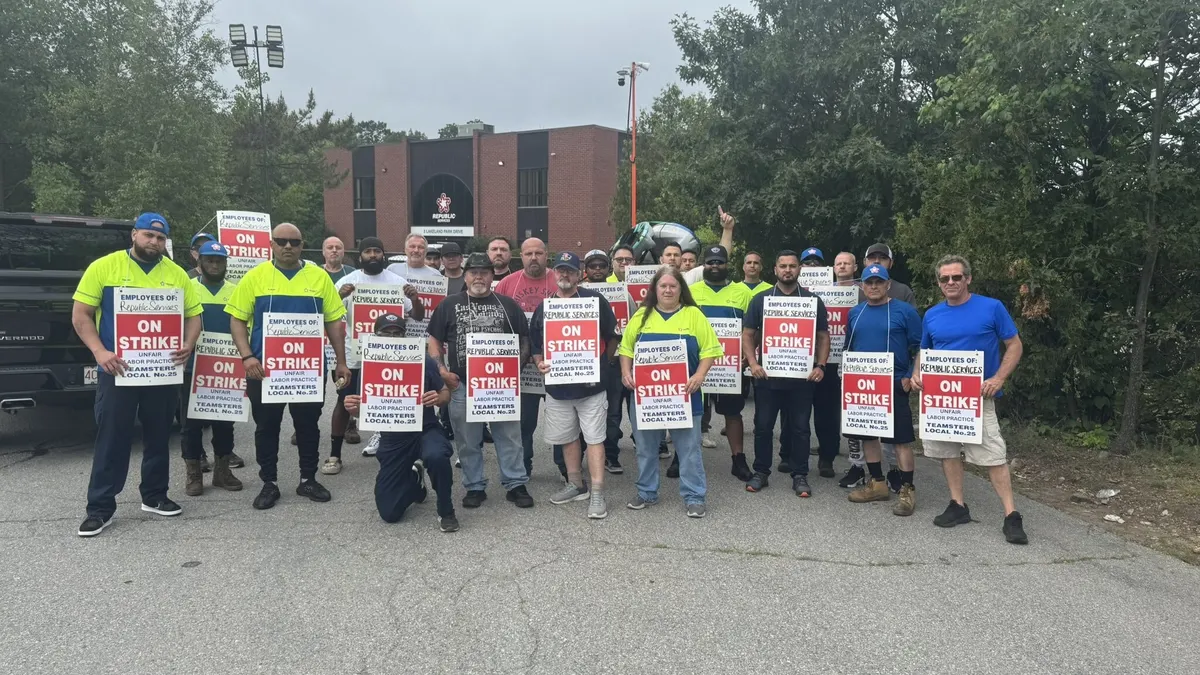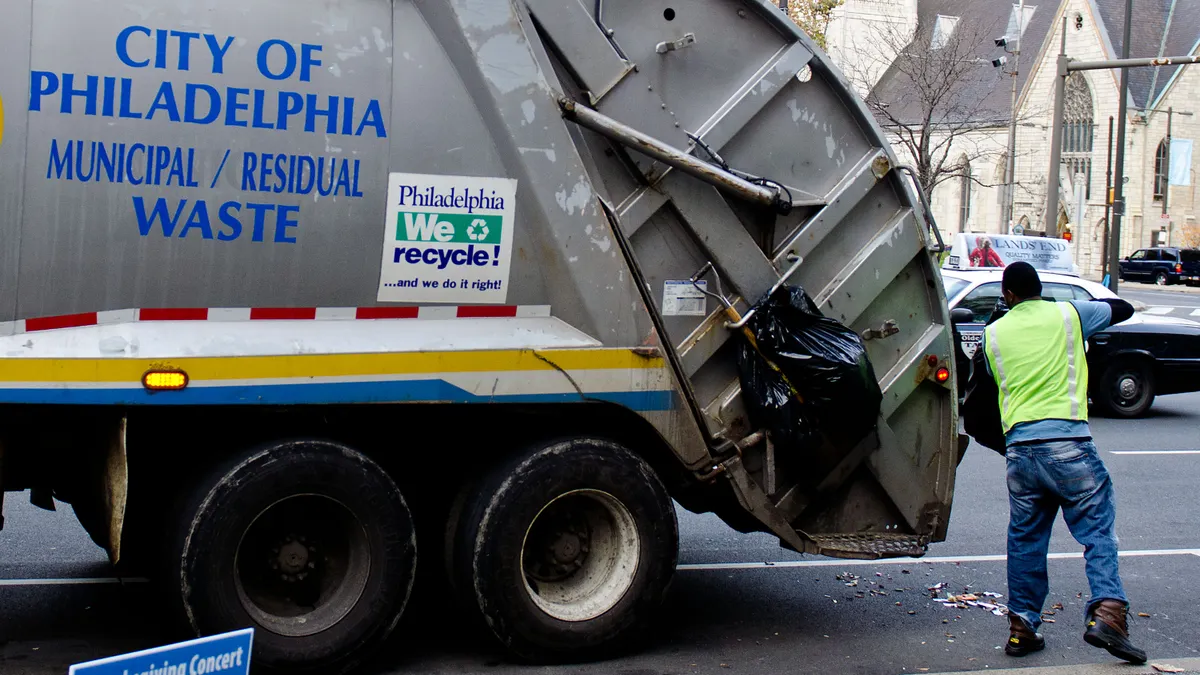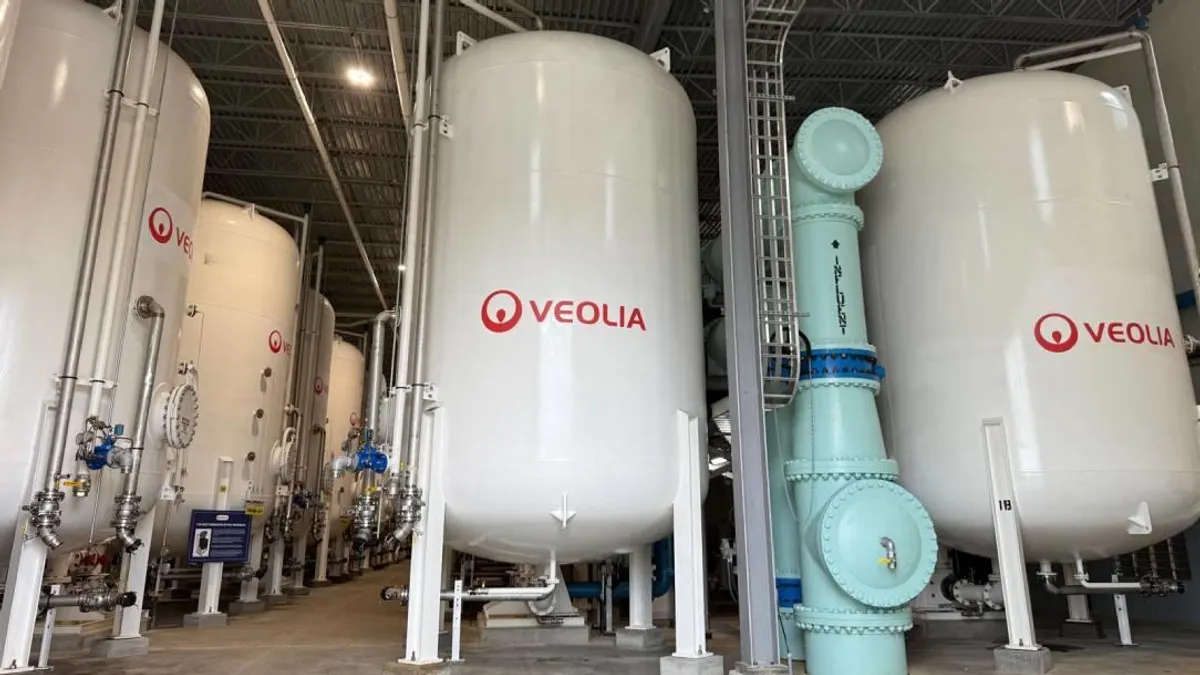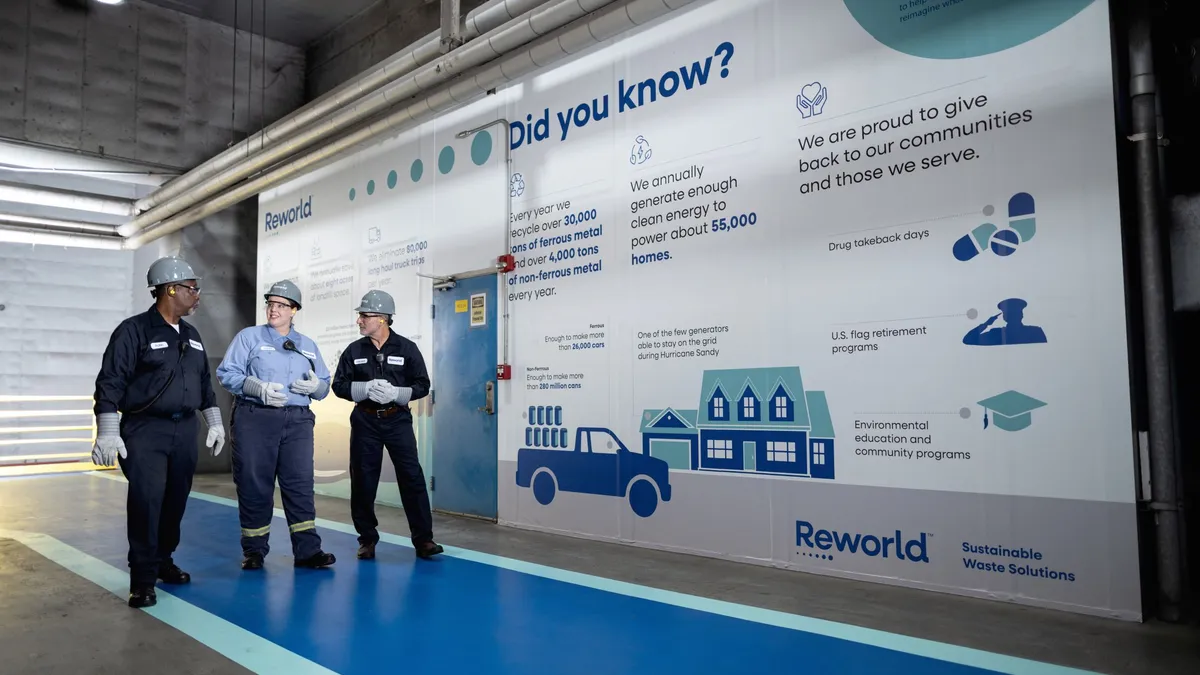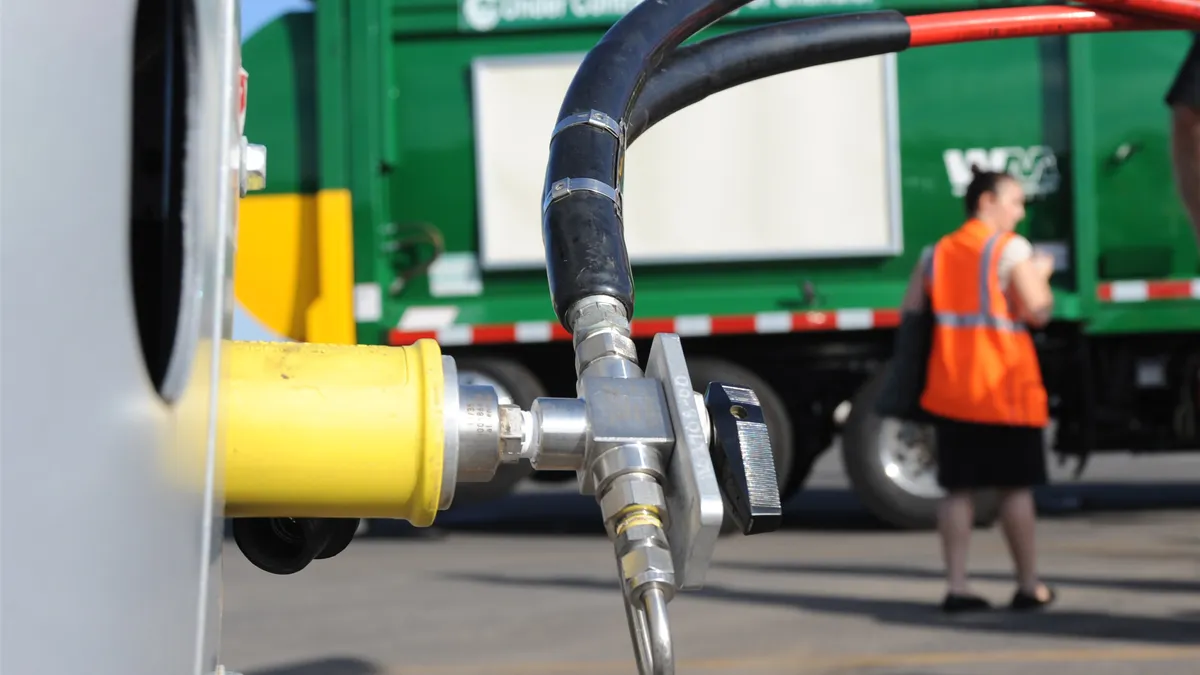The waste management sector donated at least $4,597,433 to federal candidates, parties and outside groups in 2020 — the vast majority of which went to Republicans. That contrasts to wider trends in other sectors of donating to Democratic entities and candidates, according to the nonpartisan Center for Responsive Politics (CRP).
Approximately 78% ($3,151,719) of donations went to Republicans, while 22% ($876,435) went to Democrats. Of those, 84% came from individual donors and 3% came from PACs. The remaining 12% are "soft money" donations, according to CRP, which pulls data directly from Federal Election Commission (FEC) disclosures.
Waste management sector PACs donated more than $145,000 to candidates during the 2020 cycle as of Oct. 23, including political action committees for Waste Management, Republic Services and the National Waste & Recycling Association (NWRA), according to CRP. An estimated 63% of these PAC donations have gone to Republicans.
NWRA has recently donated to GOP senators facing tough races in states like Colorado, Maine and North Carolina, along with other House and Senate candidates. Waste Management has donated to candidates ranging from the municipal and state level to numerous federal races in the House and Senate. Donations to competitive Senate races include a Democratic candidate in Alabama and Republican candidates in Alaska and Texas. Republic has also donated to state and federal-level races, including a GOP senator facing a challenging race in Arizona. Donations have also gone to federal candidates in relevant committee positions that are either not up for re-election this year or not in close races.
None of the top PAC donations have been to President Donald Trump or former Vice President Joe Biden, although the CEOs of Waste Management and Republic have made personal donations to Trump.
CRP's methodology uses contributions from donors including PACs and corporations, individuals and unions that give directly "from their treasuries." CRP defines the sector as including any company or organization whose primary purpose is waste management.
The sector's spending underscores how closely the industry is watching the election, which could have major implications for a range of issues including M&A, climate change and per- and polyfluoroalkyl substances (PFAS) contamination. CRP Outreach and Social Media Manager Brendan Quinn said in a year with federal momentum behind Democrats, donations show the waste industry is a relative outlier in its support for Republicans.
The waste industry has long leaned in favor of Republican candidates, according to Quinn, who said it was "not really super surprising" to see similar trends this year. But Quinn noted CRP has observed momentum strongly in favor of Democrats this year across many sectors — a trend waste players are not following.
"The big gap, the partisan gap, is bigger than it's ever been, so it's a bit notable in an election where Democrats are doing so much better than they ever have," Quinn said, observing the industry's support for Republicans may be due to concerns about environmental regulations under Democrats.
Top PAC donations came from Waste Management, Republic, US Ecology and NWRA, all of which contributed more heavily to Republicans. Waste Management somewhat split donations through its PAC, giving $42,500 to Democrats and $48,750 to Republicans.
Waste Management spokesperson Janette Micelli confirmed those numbers and elaborated on how PAC donations correlate to the company's business strategy. "We periodically make financial contributions to candidates who we believe recognize the value of the services we provide and the importance of environmental sustainability along with a fair, free-market approach as the best way to deliver cost-effective services," she said.
Republic meanwhile gave $6,000 to Democrats and $18,000 to Republicans, while US Ecology donated $2,000 to Democrats and $13,000 to Republicans. A Republic spokesperson said via email the company's support is "split evenly among political parties" at the state and local level.
"Contributions to federal candidates represent a small fraction of our PAC’s participation in the political process," the spokesperson said. "The vast majority of Republic’s PAC contributions support local candidates who share our values and commitment to the environment and well-being of the communities we serve."
US Ecology did not respond to a request for comment.
NWRA established its PAC in 2018 with the intent of "advancing the waste and recycling industry's priorities," according to comments at the time by President and CEO Darrell Smith and Chief Counsel and Senior Vice President for Government Affairs Jim Riley. The latter wrote in a recent September op-ed for Waste360 that the trade association sees PAC donations as an important part of its political strategy.
According to CRP, NWRA's PAC gave $12,500 to Republicans and $2,000 to Democrats during the 2020 cycle. Riley confirmed via email the number to Democrats and said the association made 10 donations to Republicans totaling $15,000. He added restrictions around COVID-19 hampered NWRA's plans to make $93,000 in donations this cycle, which would have gone to 40 Democrats and 53 Republicans in the House, along with three Democrats and 11 Republicans in the Senate.
"When considering the Senate, it is important to remember that this cycle there are many more Republican Senate incumbents up for reelection than there are Democratic senators who are," Riley wrote. In explaining NWRA's thought process around its PAC, he said the association prioritizes recommendations from its members and concentrates on candidates who are part of committees overseeing "issues important to the waste and recycling industry."
Waste experts have said the election will be a pivotal one for the industry. Beyond state and local outcomes, which can be impactful for the industry, federal dynamics are also relevant. M&A has been very active under Trump, who has cut corporate taxes. Under Biden, corporate tax policy would be expected to change. A Biden administration would also likely institute sweeping policies to combat climate change, as well as PFAS contamination.
Waste Management CEO Jim Fish said during the company's third quarter earnings call the company is especially focused on state elections, given their control over many environmental regulations, as well as the federal outcome. But he also indicated the company is prepared to adapt to a possible Biden win.
"We've said that regulation is actually in a strange way a good thing for Waste Management because we hold ourselves to a very high regulatory standard," Fish said, adding "to the extent that that comes out of [the] election that could be a good thing for us."







